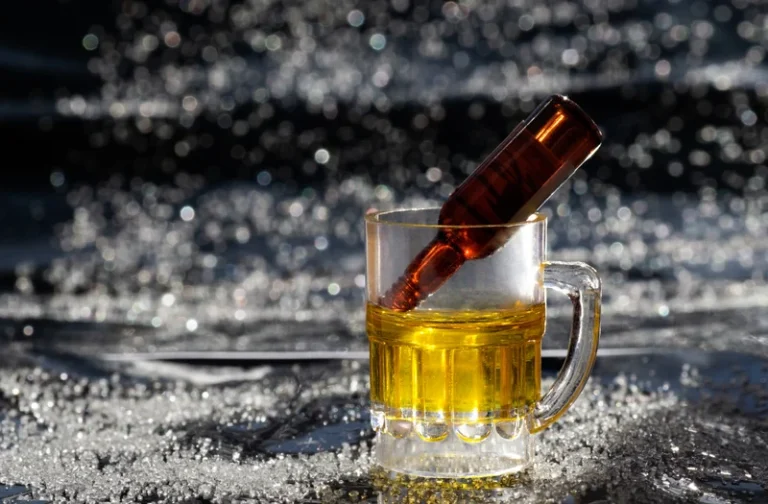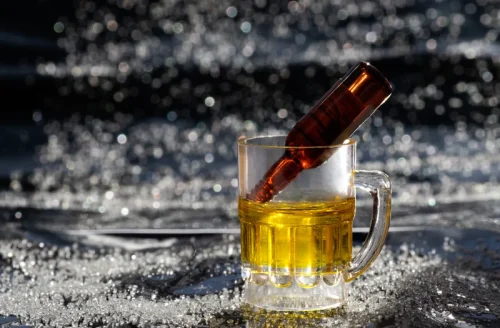
For more information on PAWS, you can read more about the alcohol recovery timeline. Heavy drinking and other unhealthy alcohol habits can worsen depression and increase anxiety. In turn, many people continue to drink alcohol to seek relief from that intensified discomfort. This, of course, can become a vicious cycle of destructive behavior. Decreasing alcohol intake while simultaneously treating underlying mental health conditions leads to a more sustainable emotional wellbeing.
- By Buddy TBuddy T is a writer and founding member of the Online Al-Anon Outreach Committee with decades of experience writing about alcoholism.
- That’s why it’s common for people who use alcohol to be malnourished.
- One common mistake for those who are new to alcohol and drug recovery is substituting a new compulsive behavior for their old one.
- I’ve mentioned this in a previous post, but in case you missed it, did you know the average person spends TWO YEARS of their life hungover?
- The study was limited to 11 participants that had at least 10 years of sobriety in a 12-step program under their belts.
- You can take in every second, and not feel like your life is passing you by in a whirlwind of blurred memories.
One Year Sober: What To Expect & Benefits

Statistically, most people are much more likely to remain sober after reaching this anniversary. Sobriety can significantly improve one’s overall health and well-being. “There are people who have learned to practice very reasonable alcohol consumption that contributes to psychosocial well-being in a way that does not impair their health,” Kumar noted.
Benefits of Sobriety at 6 Months
However, what many people consider to be “social levels” of drinking are actually defined by the Centers for Disease Control and Prevention (CDC) as heavy drinking. Probably not, but with almost 3 weeks of sobriety behind you, you may feel – and even look – rejuvenated. Often our skin improves as a result of cutting alcohol out of our lives, including fewer bags under our eyes. In addition to healthier activities, at this point, you’ll likely enjoy a more normal appetite. It’s common to maintain a more steady diet in sobriety, instead of skipping breakfast the morning after drinking, for example.
- These help boost mood and focus your attention away from urges to drink.
- Cognitive, emotional, and sleep disturbances can occur at even moderate levels of drinking.
- It can include a medically supervised detox, various forms of treatment including therapy and 12-step programs, and calling upon family, friends, and professionals for additional support.
- However, when you drink in excess, the enzyme gets saturated and is metabolized by a different enzyme.
- Cutting out alcohol for 30 days can have benefits for those who drink more than the recommended limit of two drinks a day for men and one drink a day for women.
- My friend, if you can go months and months without drinking, you can do anything!
How to Get Help Quitting Alcohol
- Go sober with friends and family to gain community support, make the switch to mocktails, and always bring an alcohol-free drink with you when you attend social gatherings.
- It’s important to move at your own speed, and remember that as long as a treatment method is working for you, it’s reasonable to stick with it.
- Under certain conditions, alcohol can negatively affect our bodies and personal relationships.
- The irritation alcohol inflicts on the stomach lining, often causing nausea and discomfort, diminishes.
- A therapist can help you learn new coping skills, develop new thinking patterns, and address any co-occurring mental health conditions that may make recovery more difficult.
- Friendships can be tricky things in early sobriety, especially when all of your friends are drinking buddies.
During these first few days of sobriety, you may have trouble sleeping. Night sweats, insomnia, and frequent sleep interruptions are to be expected. These sleep disturbances occur because your body is adjusting to the absence of alcohol.


Leaving alcohol out of your daily life also contributes to your overall cardiovascular health, and reduces your risk of heart disease. And if that wasn’t enough reason to hit the ground running toward sobriety, enhanced lung function and a decrease in respiratory issues might be. In short, not drinking alcohol greatly contributes to happier, healthier organs and body systems. Many people report less intense alcohol cravings during this timeframe. However, it’s worth mentioning that alcohol cravings can be replaced with cravings for sugar. Many alcoholic beverages are high in sugar, and your body is still in recovery mode.
The Emotional, Mental, & Physical Benefits Of Sobriety
- Alcohol can also increase your risk of various cancers, particularly gastrointestinal ones, and cutting back can reduce that risk.
- In these programs, it’s customary to receive plastic chips as you progress to the one-year mark, at which time you receive a bronze coin.
- You may also experience what is commonly called sobriety fatigue, which refers to the overall exhaustion that may occur as a result of the emotional and physical stress of staying sober.
- Everything in your life can feel more manageable without the effects ofalcoholand drugs.
- For college students, being dry is the best thing to do,” he said.
The ability to engage fully in meaningful activities, pursue passions, and build a positive future is enhanced without the limitations of addiction. If you reasons to stay sober have wondering, “Should I go sober”, beginning this journey can be life-changing but challenging. As individuals grapple with the decision to abstain from substances, they may find themselves questioning why being sober is better. Those confronted by uncertainties like this should consider doubling down on some key reasons to get sober and stay sober. Prepare yourself with strategies to help you avoid triggers so you can quit alcohol. This may include alcohol-free events or socializing with people who don’t drink.

You’re no longer waking up with that sinking feeling that something terrible might have happened the night before, but you can’t quite remember what. You don’t have to call or text the people you were with and try to piece together the previous night. You might realize that you look forward to weekend mornings now instead of dreading hangovers and hangxiety. Spending quality family time or pursuing our hobbies becomes much more fulfilling than alcohol use. Now you can check out the farmers’ market, go on a long walk, or make some progress on that DIY project.
Better Relationships

Learn on the strategies that have worked for you in the past to get through these urges. Understanding what to say to a recovering alcoholic or someone grappling with drug addiction can be challenging if you have not faced these experiences yourself. If you have tried and failed to achieve sobriety, you can maximize your chance of recovery by engaging with evidence-based treatment at Renaissance Recovery in Huntington Beach.

최신 댓글